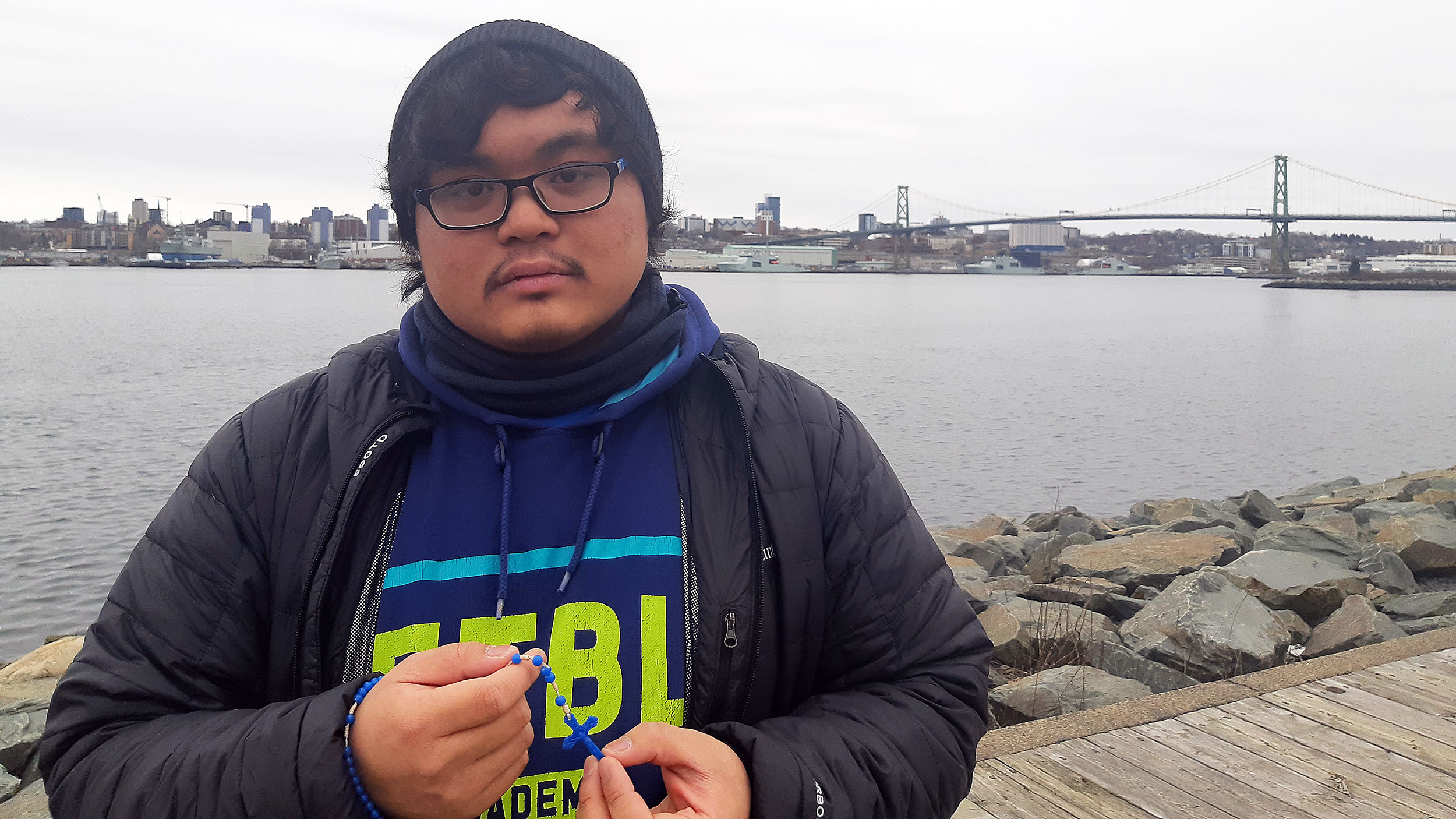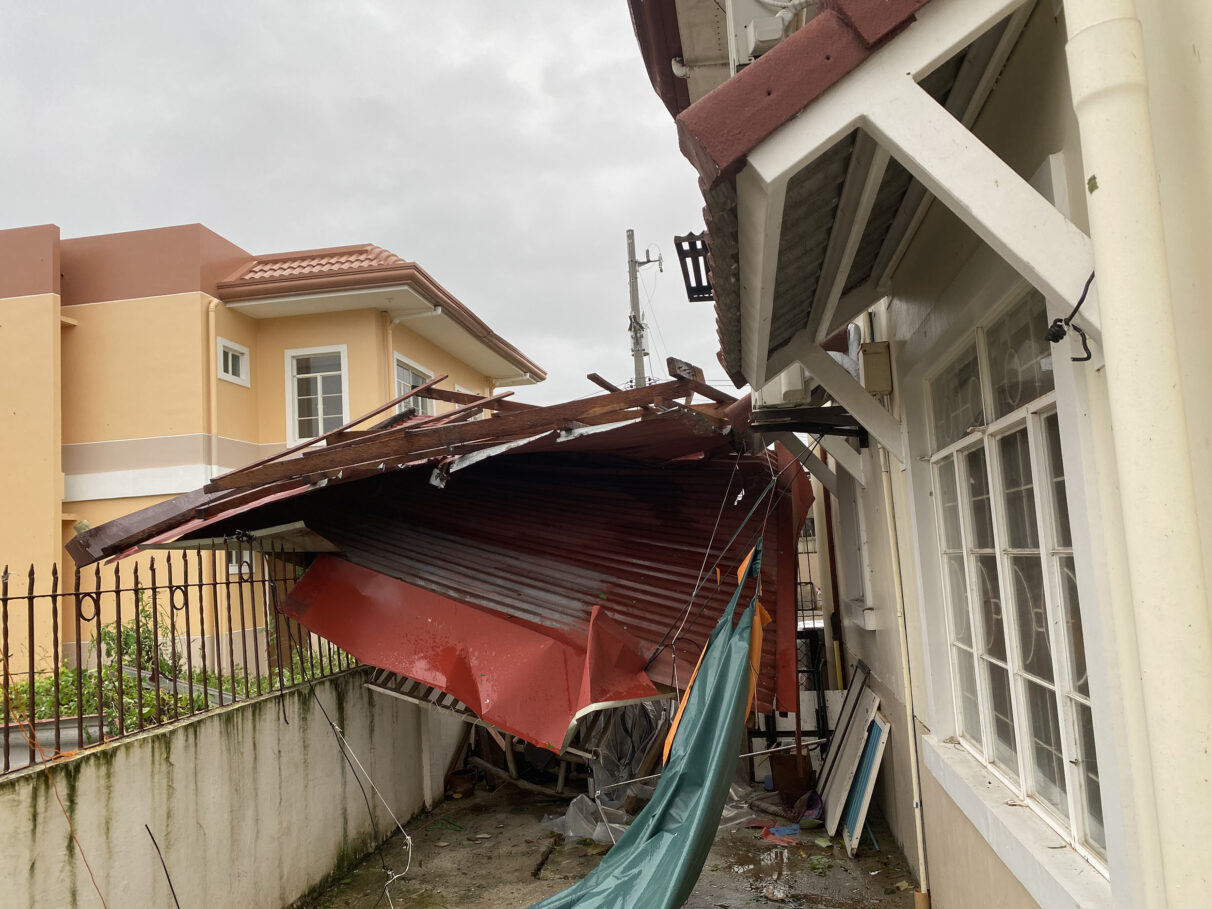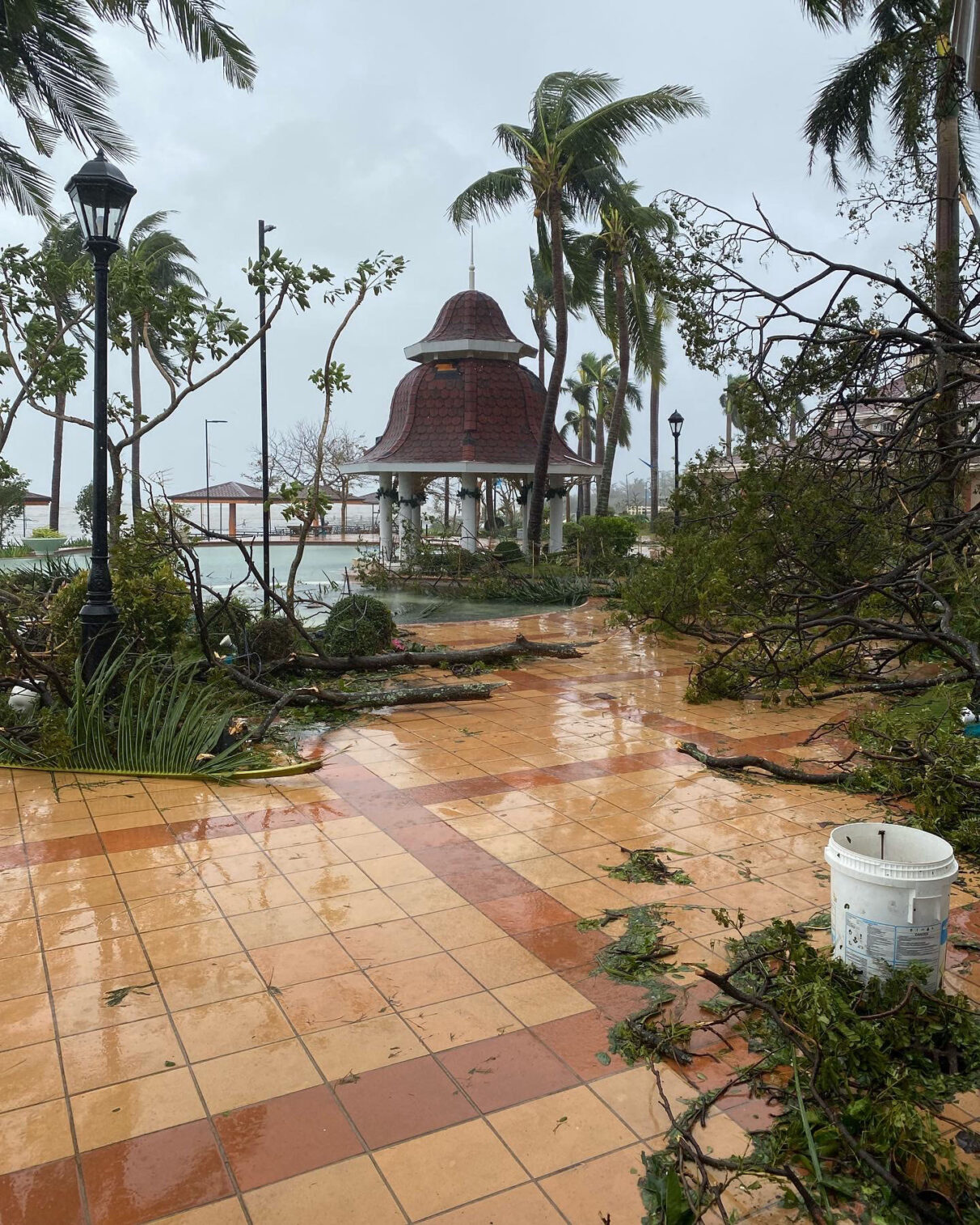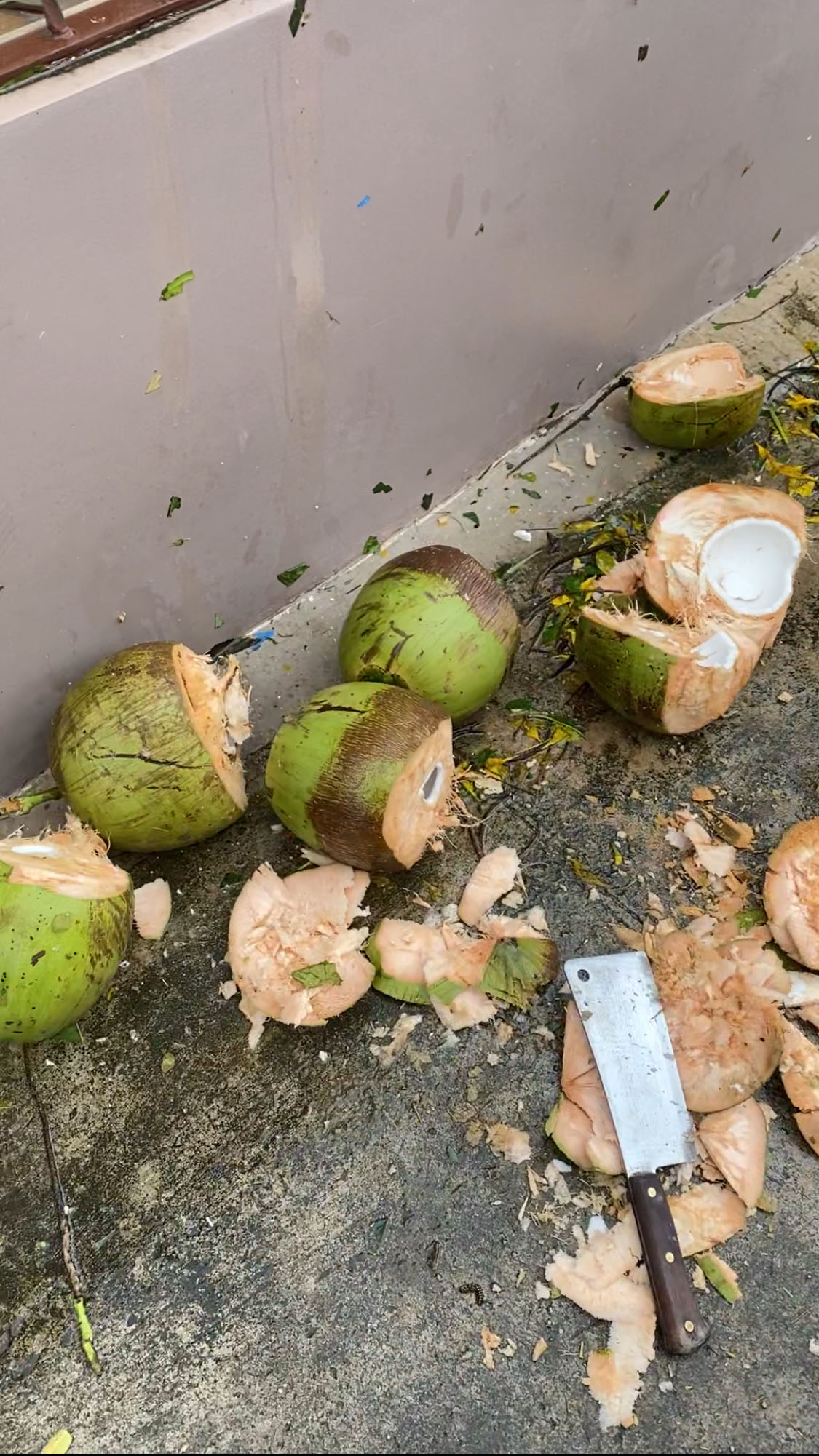‘If I can survive a typhoon, I can survive anything’

caption
Dheif Daniel Yunting poses for a photo on the Dartmouth waterfront while holding a rosary he says gave him comfort as the typhoon rocked his house in Talisay City, Cebu, Philippines.Heartbreak and resilience in the aftermath of Typhoon Rai
Dheif moved to Canada to pursue a Master’s in journalism. He’s Filipino, but was born and raised in Saudi Arabia. Though he went back every summer with his parents, he never spent more than two or three months at a time in the Philippines.
He’d always been passionate about storytelling and so, after graduating high school, he decided to move to the Philippines to complete his undergraduate degree in communications and media. During that time, he was part of a radio program that provided advice to marginalized communities and got involved in community outreach activities.
On Dec. 15, 2021, Typhoon Rai, known by locals as Super Typhoon Odette, hit the Philippines. The typhoon strengthened faster than any other storm system in recent memory, going from category 2 to 5 on the Saffir-Simpson Hurricane Scale – where 5 is the maximum wind speed – in a matter of hours. At the time, Dheif was staying in Talisay City, in Cebu – one of the southern islands in the Philippines that were hit by the storm with violent force.
The minute you enter Talisay City, you’re already near the sea. It’s a hustle and bustle type of city. Before the typhoon, it was a very jolly town. There’s lots to do, lots to eat, lots to see. It’s just a fun place to be, honestly.
At the time, I was taking my undergraduate degree and I was working specifically on my thesis. My uncle and my cousin were staying with me because both my parents were working in Saudi Arabia.
My uncle told me that there have been reports over the radio that an incoming typhoon is gonna hit, which, I believe those living in the West would refer to as a hurricane. I looked it up online. He was right: there’s an incoming typhoon. I was a bit surprised; the reports were saying that it’s a typhoon of, I believe, class 3, which, on the scale from good to bad, it’s like, in the middle, right? I was very surprised, but then I hunkered down and I decided to just listen to my uncle first and see what we can do to prepare for it.

caption
Typhoon Rai destroyed the outdoor kitchen (which in local parlance is known as a “dirty kitchen”) on Dheif’s family property in Talisay City, Cebu, Philippines.We went to the grocery store and bought all the food that we needed, so that, in case of a power outage, which we expected to last about a week, we had enough food to last. My uncle moved everything that was valuable inside the house. Our dogs – I had three dogs at the time – we put them inside the house. I also had two rescued kittens at the time, so I had to make sure they were safe inside my room. I parked my car inside our little garage just so that, in case a tree falls, the car wouldn’t be damaged. We spent hours just preparing and we made sure our electronics, the important ones, were charged. But I wasn’t taking it too seriously, because the clouds were very clear, very calm and there wasn’t even a drop of rain. It just felt like a normal day. But that all changed immediately when night fell and the typhoon actually hit.
I remember being stuck inside the house with my uncle, my cousin, and my other cousin who brought in his family because they were worried that their house wasn’t strong enough to withstand the typhoon. My uncle and my cousins were worried about me because they’ve experienced a strong typhoon before, so they sort of know what’s going on. I didn’t. So while I was nervous, I was also reassured by the fact that I have these people here who know what to do in situations like this. So they helped me during that time by just telling me what to do, what not to do.
When the typhoon made landfall, not even like two hours in, the power went off throughout the entire island. So you can imagine that since it went at night, it was completely dark, so we couldn’t see anything outside.The thing I can remember vividly was the howling wind throughout the night. And you can hear it pick up speed and get louder and stronger with every minute passing by. A few hours later, all of us heard something so loud and it made such a discomforting, screeching sound; it turned out to be the roof of my dirty kitchen. And when I say dirty kitchen, it basically just means the kitchen outside of my house, at the back. The roof itself wasn’t very strong, in fact, it was just meant to be temporary, but it’s made of metal and so you could hear scratching and crunching as it’s being battered by the wind. It’s something that still sticks with me. Whenever I hear wind, I just go back to that time.
So morning came, and the wind stopped howling. And that’s when we could actually see the damage. And let me tell you, the damage that me and my family saw, we really didn’t expect it. The first thing I noticed when I woke up was this large crack in my bedroom window. I looked outside and I saw the roof of my dirty kitchen smashed: it folded up, hit my window first and then went crashing down. When I stepped out, all the plants that my mom had bought, completely gone and the little sofa that we had outside was also destroyed.
This was just in our immediate area, so we were wondering: how bad was it further out. So me and my cousin decided to walk around our subdivision – it’s a gated community, essentially. We saw that a lot of the telephone and electric poles were cut down. These poles are made of concrete and metal, and they’re just snapped in half. We went to our subdivision clubhouse and it was just in shambles. All the beautiful decorations were just completely ruined and it was just surreal. All the trees were knocked over; there was a tree in the pool and I was going around taking videos and photos to show my parents back in Saudi Arabia. They were shocked and scared for me.
But amidst such chaos and destruction, we were thankful. My house had survived despite some minimal damage, and we also made some good moments out of it. For example, because most of the trees fell down, some of the coconuts also fell down, my cousin decided to bring some back home and started extracting the coconut meat. That was my family’s breakfast that morning.

caption
A popular beach and tennis club in Dheif’s neighbourhood was hit hard by the typhoon.
caption
The morning after the typhoon, Dheif and his family had a breakfast of coconut meat, thanks to the many trees that were felled by the violent storm.The typhoon left me humbled because it doesn’t matter what my status is, whether I’m in the middle class family or not. It made me realize that this can happen to anyone. It taught me survival skills. When the power was out, the entire island was out of power and because there’s no electricity, a lot of the resources, like water, couldn’t be passed around as much. No one has access to the Internet because all the poles are down. When we drove outside and checked the other places, the first thought that came to mind was: wow, it’s like a war zone.
Honestly, seeing so much beauty damaged by this typhoon, seeing Talisay City become this wasted area, was just heartbreaking. But it wasn’t just the structures that really broke my heart, what really, really struck me was the fact that there are people with houses who aren’t as strong as my house, possibly their houses are gone. They’re swept away by the wind or flooded. Seeing everyone trying to recover from it was tough. It left a scar in the community.
But as we like to say, we’re resilient. One way I helped myself was to be useful. I felt helpless initially, but I thought, you know what? This won’t help me, just sitting around complaining. It can’t do anything. I decided to help myself by being useful to others.
I wasn’t distressed to the point where it paralyzed me, but I wish that people were more sympathetic. I would have liked to receive just a bit of sympathy from my international friends, because something tragic happened, something really big happened to me, and I survived.
We never imagined that our island would be hit by such a typhoon, and a lot of scientists and media outlets were blaming climate change. Because here’s the thing: the Philippines itself is very prone to natural disasters, especially typhoons, given that we are located in the Southeast region of Asia. We’re surrounded by water and typhoons are nothing new to us. But Cebu has never been hit by something so powerful in long memory. I remember speaking to a very old resident, he said, the last time he remembered a typhoon like that was 50 years ago.
We’re a very small country and we could easily be swept off the earth if another typhoon comes. I hope that, at the very least, the Filipino government learned from it, and hopefully it changes our island for the better so that we’re better prepared for any more typhoons that may come. I just hope other countries do the same as well. Climate change is real and I experienced it.
I’m just thankful that I was able to live through the typhoon, because it really opened my eyes to the reality of living in such a climate-change disaster-prone country like the Philippines. I’m very thankful for the experience because it made me into a much more resilient person. If I can survive a typhoon, I can survive anything.
About the author

Dheif Daniel Yunting as told to Nour Hafid
